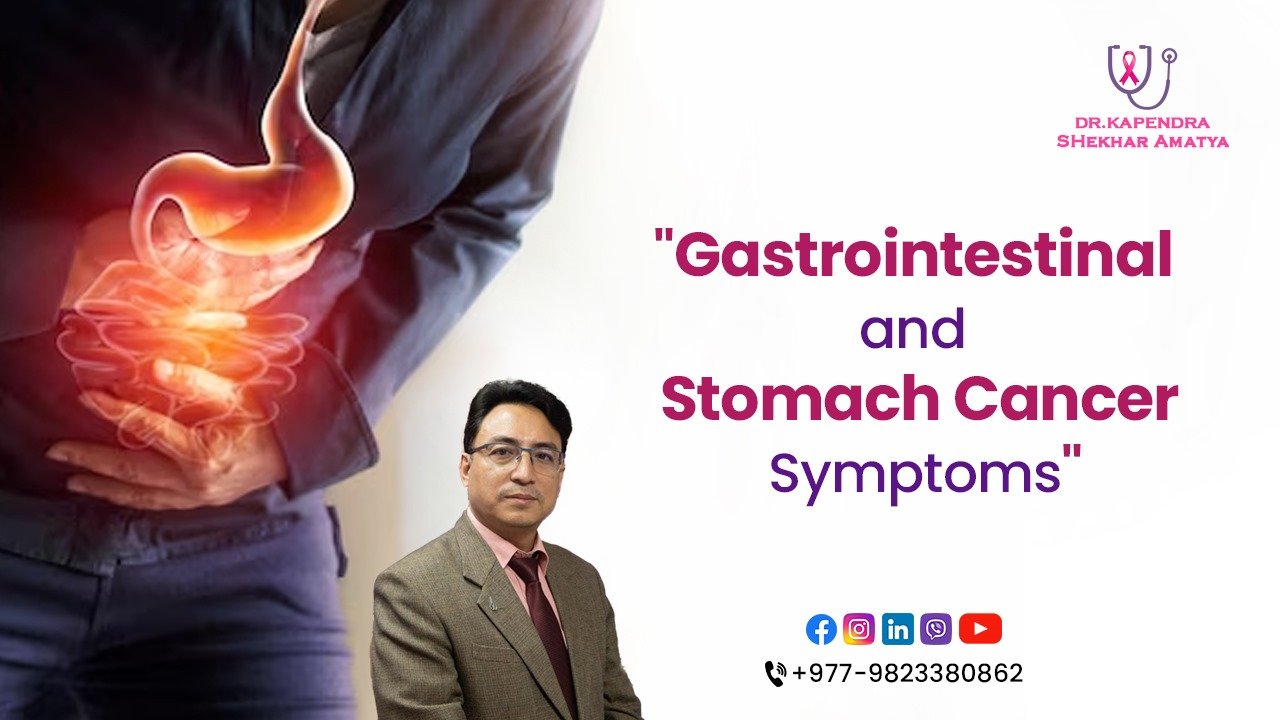Table of Contents
ToggleIntroduction:
Gastrointestinal (GI) issues are common and can often be attributed to various factors such as diet, stress, or infections. However, it’s essential to recognize when symptoms might be indicative of a more serious condition, such as stomach cancer. Distinguishing between common GI discomfort and potential signs of stomach cancer is crucial for early detection and timely intervention. In this article, we’ll explore how to differentiate between common gastrointestinal symptoms and those that may warrant consultation with a healthcare professional.
Common Gastrointestinal Symptoms:
- Indigestion:
- Common Cause: Consuming large or spicy meals.
- Concerning Signs: Persistent or worsening indigestion unrelated to diet.
- Heartburn:
- Common Cause: Acid reflux due to certain foods or beverages.
- Concerning Signs: Frequent or severe heartburn that does not improve with dietary changes.
- Abdominal Pain:
- Common Cause: Gas, bloating, or constipation.
- Concerning Signs: Persistent or localized abdominal pain, especially if accompanied by weight loss.
- Changes in Bowel Habits:
- Common Cause: Dietary changes or mild infections.
- Concerning Signs: Persistent diarrhea, constipation, or noticeable changes in stool size or color.
- Nausea and Vomiting:
- Common Cause: Viral infections or motion sickness.
- Concerning Signs: Unexplained, persistent nausea or vomiting.
Differentiating Stomach Cancer Symptoms:
- Unexplained Weight Loss:
- Concerning Sign: Significant weight loss without changes in diet or physical activity.
- Blood in Stool or Vomit:
- Concerning Sign: Presence of blood, either visible or detected through stool tests.
- Persistent Fatigue:
- Concerning Sign: Extreme tiredness unrelated to lifestyle factors.
- Difficulty Swallowing:
- Concerning Sign: Persistent difficulty or pain while swallowing.
- Abdominal Mass or Swelling:
- Concerning Sign: Noticeable lumps or swelling in the abdominal area.
When to Seek Medical Attention:
If you experience persistent or worsening symptoms, especially those listed under concerning signs, it is essential to consult with a healthcare professional promptly. Stomach cancer, like many cancers, may respond better to treatment when detected at an early stage.
Conclusion:
While common gastrointestinal issues are often benign, it’s crucial to pay attention to persistent or unusual symptoms that may indicate a more serious condition. Regular health check-ups, especially if you are experiencing concerning signs, can help ensure early detection and timely intervention, improving the chances of successful treatment. Always consult with a healthcare professional for personalized advice and proper diagnosis.

MS (NMC Regd.2902)
Head of the Department, Sr.Consultant Surgical Oncologist at Nepal Cancer Hospital and Research Center
Director: Breast Cancer Program
Interest: Breast Cancer Surgery, Gastro Intestinal Cancer Surgery (Stomach and Colo-Rectal Cancer)



1 thought on “Common Gastrointestinal and Stomach Cancer Symptoms”